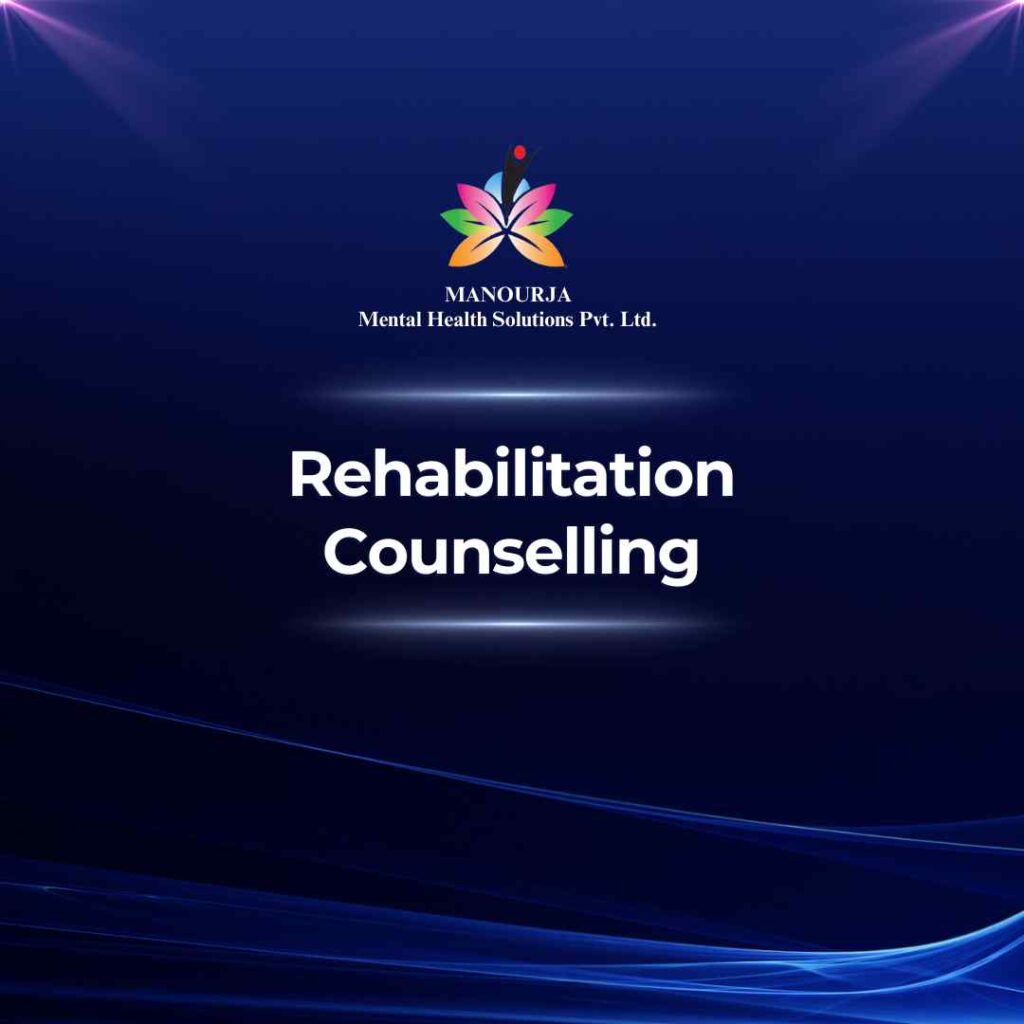Rehabilitation Counselling

Rehabilitation problems often arise when individuals are recovering from injuries, surgery, or dealing with chronic illnesses or disabilities that impair their physical, mental, or emotional functioning. These challenges can significantly affect a person’s ability to perform daily activities and lead to broader implications for their overall well-being.
Common Symptoms of Rehabilitation Problems Include
- Physical Limitations: Difficulty with mobility, strength, or performing daily tasks independently.
- Frustration and Anger: Emotional responses to the limitations imposed by the condition or the slow pace of recovery.
- Depression and Anxiety: Feelings of hopelessness about the future, or anxiety about the prospects of full recovery and return to normal life.
- Social Isolation: Withdrawal from social interactions due to embarrassment about one’s condition or physical incapability to engage in social activities.
- Dependency: Increased reliance on others for personal care or daily activities, which can affect the individual’s sense of autonomy and self-worth.
- Cognitive Issues: In cases of brain injuries or neurological disorders, difficulties with memory, attention, or problem-solving can be prevalent.
How Counselling Effectively Treats Rehabilitation Problems
Counselling provides crucial psychological support that complements physical rehabilitation by addressing the emotional, cognitive, and social challenges associated with recovery.
- Cognitive Behavioral Therapy (CBT): Helps patients manage negative thoughts and emotions related to their rehabilitation, fostering a more positive outlook and effective coping strategies.
- Motivational Interviewing: Aids in resolving ambivalence or lack of motivation towards the rehabilitation process, enhancing engagement and adherence to therapeutic regimens.
- Family Therapy: Supports family members in understanding the rehabilitation process and equips them with strategies to provide effective support without fostering dependency.
- Psychoeducation: Educates patients and their families about the rehabilitation process, expected outcomes, and strategies for managing daily challenges.
- Group Therapy: Facilitates interaction with others facing similar challenges, providing a supportive community where individuals can share experiences and coping strategies.
Steps Followed in MANOURJA for Counselling of People in Rehabilitation
- Initial Assessment: Evaluate the psychological impact of the individual’s condition, including any barriers to successful rehabilitation such as depression, anxiety, or social withdrawal.
- Goal Setting: Collaboratively establish goals that focus not only on physical recovery but also on improving psychological resilience and social integration.
- Development of a Personalized Treatment Plan: Tailor a comprehensive plan that incorporates appropriate therapeutic techniques to address the specific emotional and psychological needs of the individual.
- Regular Counselling Sessions: Conduct ongoing sessions that focus on monitoring progress, adjusting coping strategies, and reinforcing positive psychological and behavioral changes.
- Continuous Evaluation and Adaptation: Regularly assess the effectiveness of the interventions and make necessary adjustments to ensure the individual’s psychological needs are being met effectively throughout the rehabilitation process.
Through these therapeutic approaches, Counselling at MANOURJA helps individuals in rehabilitation navigate their recovery more effectively, ensuring they receive comprehensive support that addresses both their physical and psychological needs.
“Every day holds new strength and healing; embrace each moment with hope and courage.”
